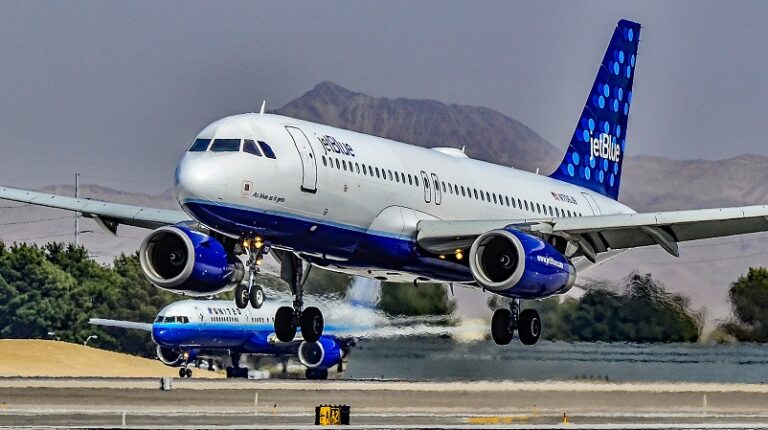

The climate plan for aviation is losing its last shred of credibility, after the European Union confirmed it will back an industry proposal to water down the rules, campaigners have warned.
In the wake of the global coronavirus pandemic, the International Air Transport Association (Iata), called on the UN body responsible for aviation to ease airlines’ obligations to offset their emissions growth under a scheme known as Corsia.
Iata urged the International Civil Aviation Organisation (Icao) to change the baseline from which emissions growth will be measured – a move it estimates could save airlines $15 billion in carbon offsetting costs.
At a time when the industry is reeling from grounded flights due to Covid-19, airlines argue current rules risk creating “an inappropriate economic burden on the sector”.
On Tuesday, EU member states backed the baseline change, which could see airlines pay nothing for their climate impact until 2024.
France, Germany, Italy, the UK, Finland, the Netherlands, Spain and Greece will speak in favour of the adjustment at a meeting of Icao’s council this week. That means the rule change could win majority support.
Campaigners say it would further damage the credibility of the offsetting scheme, which is widely regarded as weak and not aligned with the Paris Agreement goals.
“This could be the final blow for Corsia,” Gilles Dufrasne, senior policy officer at Carbon Market Watch told Climate Home News. “It was always a ridiculously weak system, but now it is becoming essentially meaningless. Airlines are just let off the hook one more time.”
Member states of Icao have agreed to offset all growth in aviation emissions from 2020. With few technological solutions currently available to reduce planes’ pollution, airlines were expected to fund emissions cuts in other sectors, under a carbon market called Corsia.
The agreed baseline for measuring emissions was to be the two-year average across 2019 and 2020. But with 2020 turning into a year of anomalously low air travel because of restrictions to contain the spread of Covid-19, airlines have proposed to measure from pre-pandemic levels in 2019.
Analysis by the Öko-Institut in Germany found that changing the baseline to 2019 could give airlines a free pass to pollute for the next three to six years depending on the speed of the recovery. A study by the US-based Environmental Defense Fund found similar results.
Observers to the UN aviation talks argue the baseline change isn’t needed because offsets are already very cheap. An existing flexibility provision built in Corsia could be used by airlines to delay their offsetting obligations and limit additional financial costs.
Jo Dardenne, aviation manager at NGO Transport & Environnent, told CHN the change in baseline meant “we’re going from a cheap offsetting scheme to no scheme at all”.
“The aviation sector is clearly using the Covid-19 crisis to dilute the environmental effectiveness of a scheme that was already expected to bring little to zero environmental benefits,” she said.
Guest post from Climate Home News




